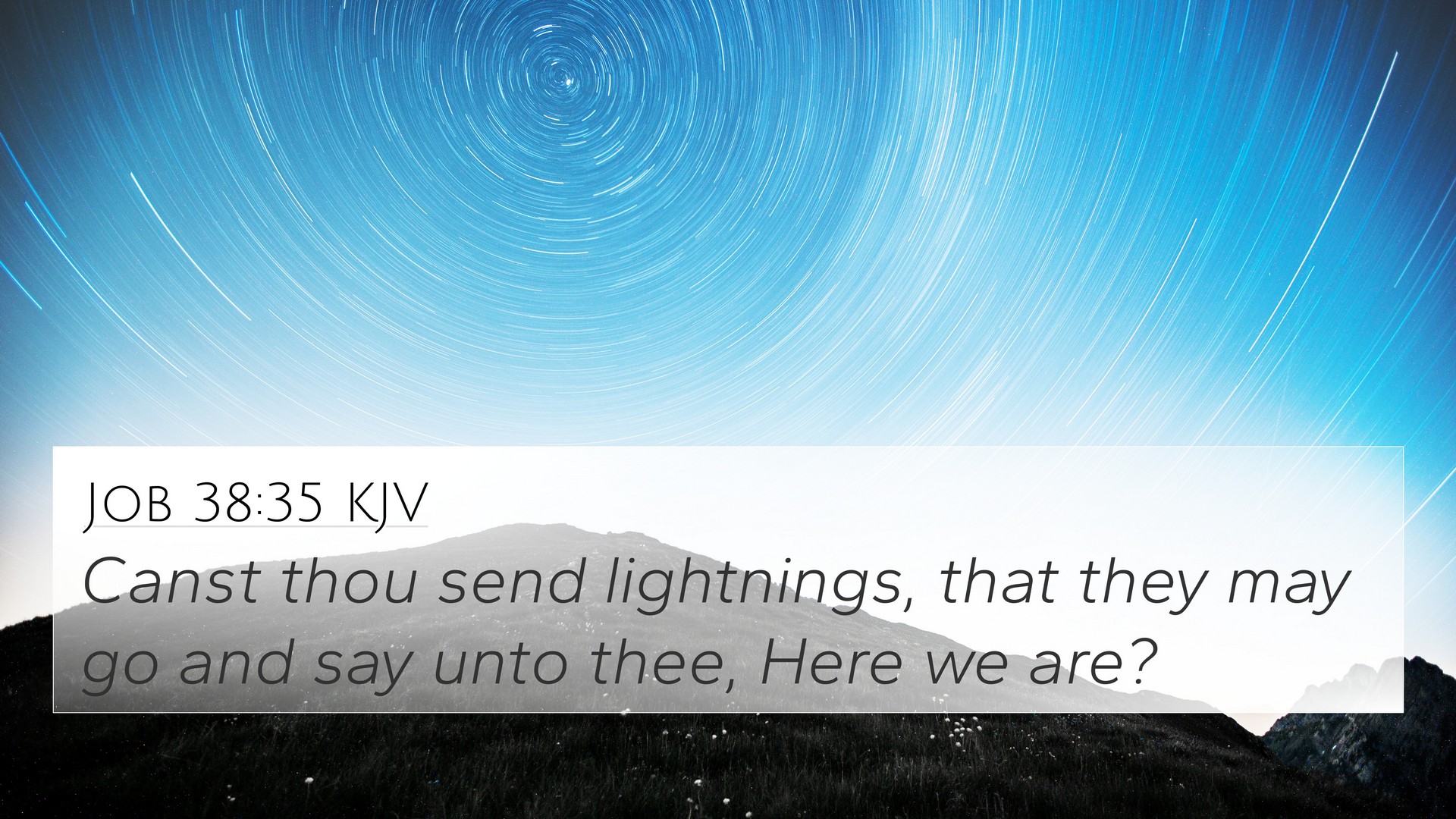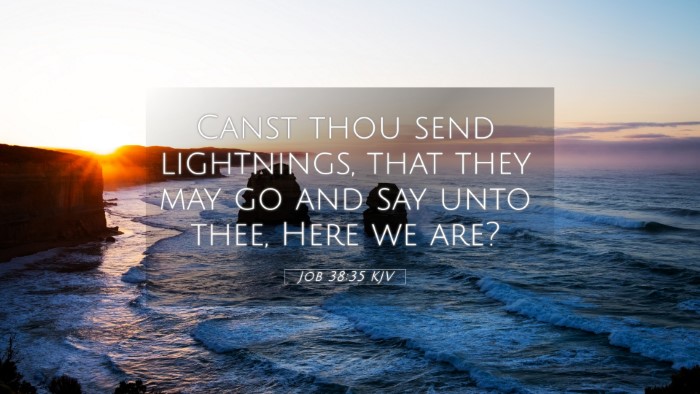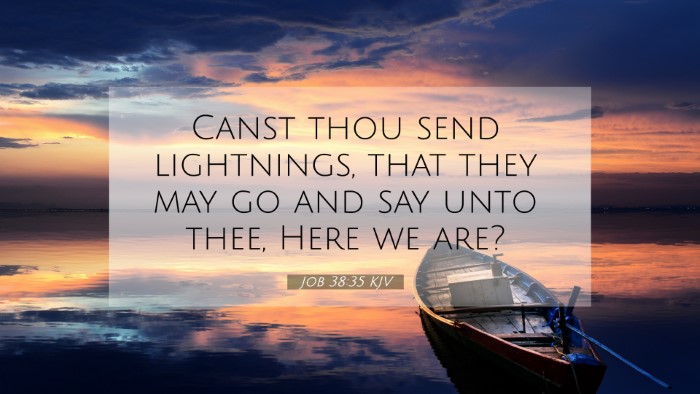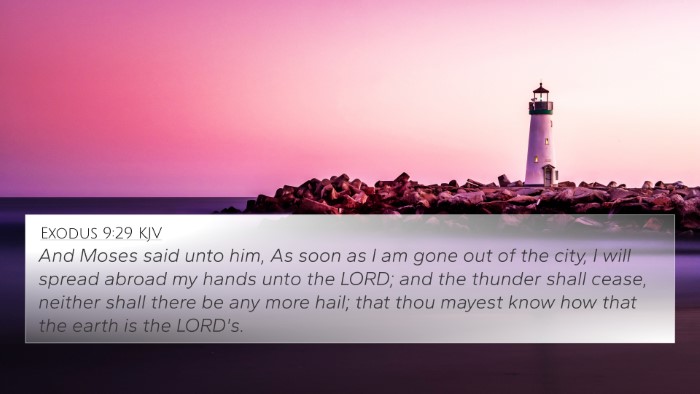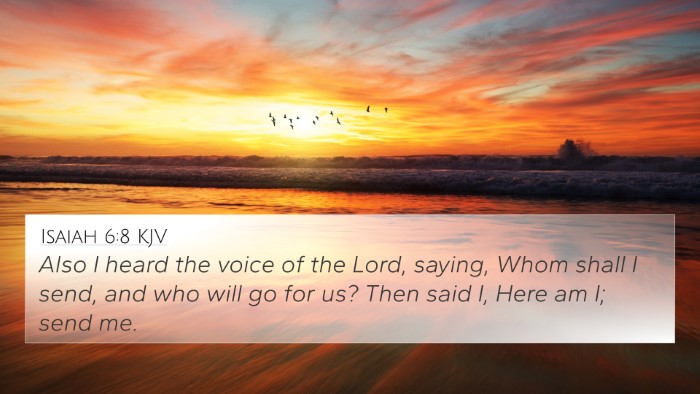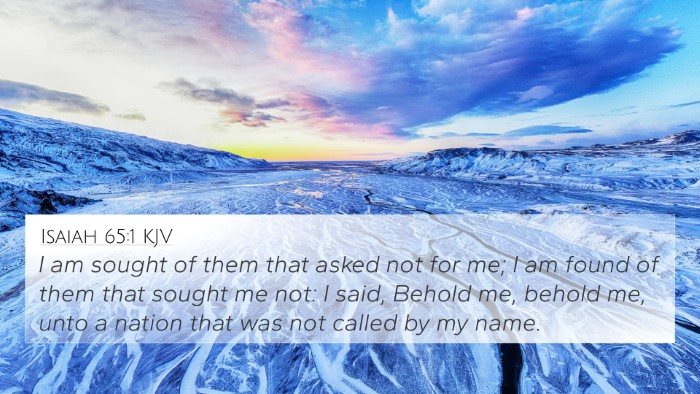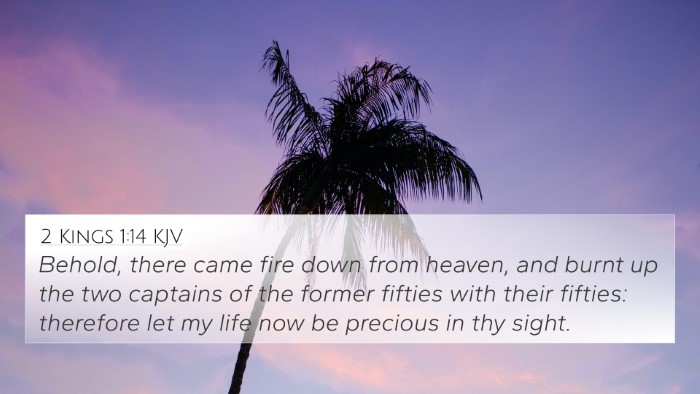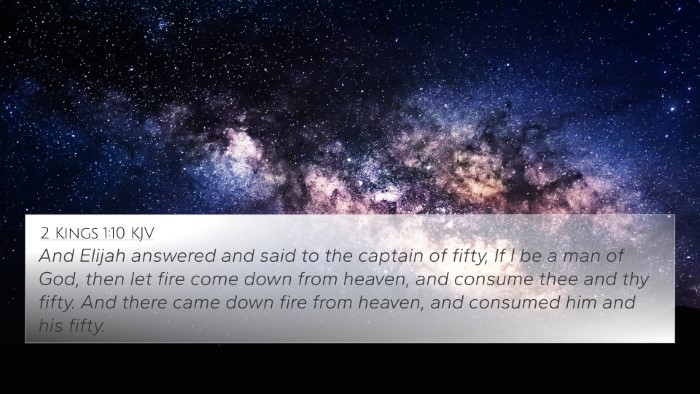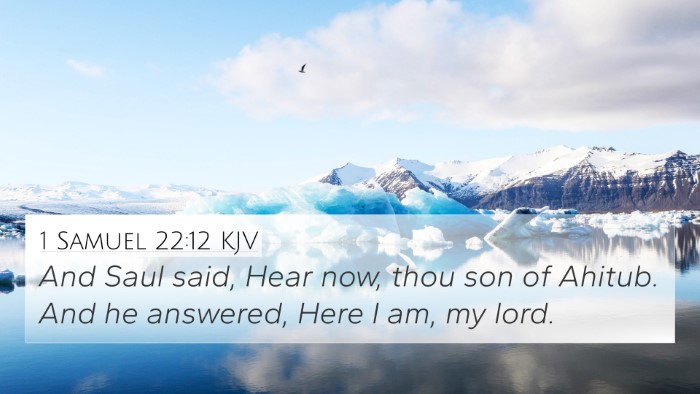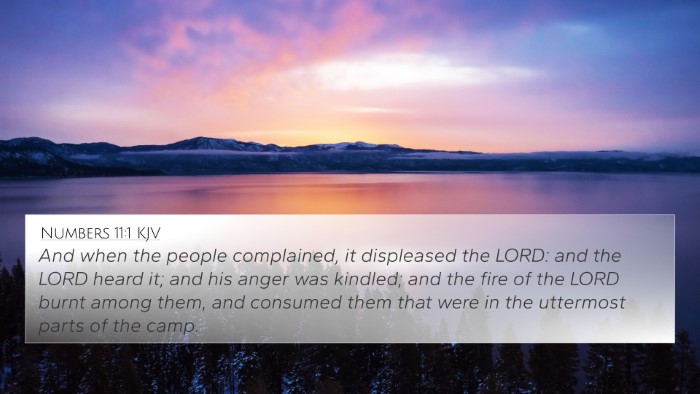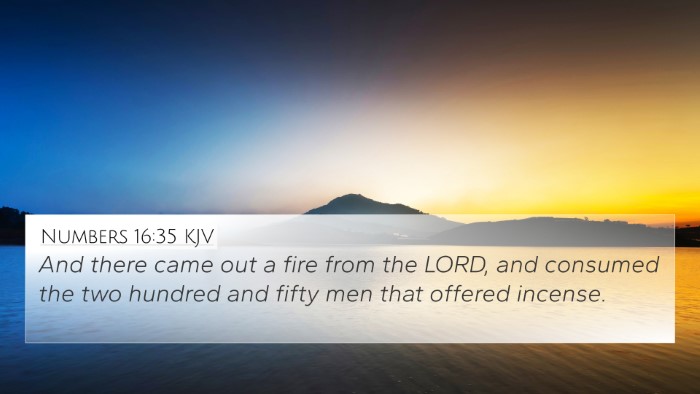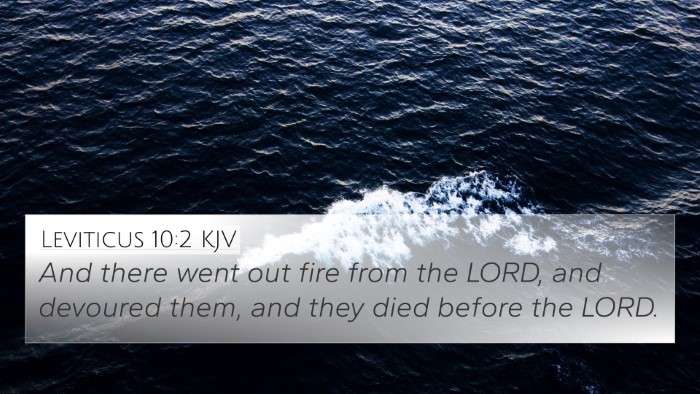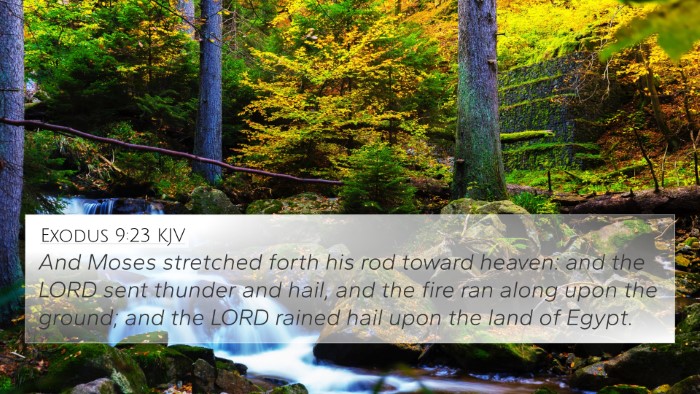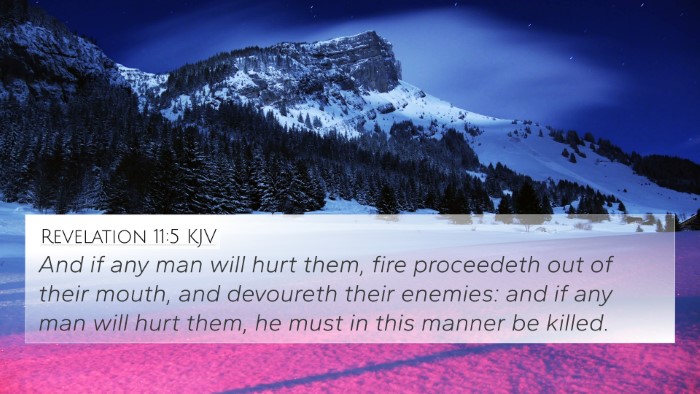Understanding Job 38:35
Job 38:35 states:
"Can you send forth lightnings, that they may go and say unto you, Here we are?"
This verse forms a part of God's response to Job after he questioned God's justice and presence in his suffering. Let’s delve into the meanings provided by various public domain commentaries like those by Matthew Henry, Albert Barnes, and Adam Clarke to gain a deeper understanding of this scripture.
Contextual Background
In the surrounding chapters, God speaks to Job out of a whirlwind, emphasizing His ultimate power and sovereignty over creation. Job, a man who endured immense suffering, has been seeking answers to his plight, and now, God challenges him with profound questions of His own.
Insights from Commentaries
Matthew Henry's Commentary
Matthew Henry points out that this verse highlights God’s power to command the elements of nature. By questioning Job, God illustrates the vast difference between divine capability and human limitation. The phrase "Can you send forth lightnings" signifies God's authority over natural phenomena, reminding Job of his role as a mere mortal.
Albert Barnes' Commentary
Albert Barnes expands this idea, suggesting that the lightnings represent the messengers of God—powerful forces that execute His will. He emphasizes that Job’s human limitations become evident when faced with the grandeur of God's creation, framing the verse within the broader theme of divine omnipotence throughout the Book of Job.
Adam Clarke's Commentary
Adam Clarke elaborates on the metaphor of lightnings, viewing them as symbolic of revelation and communication from God. Clarke insists that while Job cannot control or command such forces, God does so effortlessly, showing how nature bears witness to God's omnipotence and authority.
Bible Cross-References
This verse can be understood in light of several other scriptures, forming connections and themes throughout the Bible:
- Job 36:32 - "With clouds he covereth the light; and commandeth it not to shine." (Illustrating God’s sovereignty over light)
- Psalm 104:4 - "Who maketh his angels spirits; his ministers a flaming fire." (Connecting to God's command over the elements)
- 2 Peter 3:10 - "The day of the Lord will come as a thief in the night; in the which the heavens shall pass away with a great noise..." (Emphasizing divine judgment and power)
- Isaiah 40:26 - "Lift up your eyes on high, and behold who hath created these things..." (Understanding divine creation)
- Matthew 8:26-27 - "What manner of man is this, that even the winds and the sea obey him!" (The power of Christ over nature)
- John 1:5 - "And the light shineth in darkness; and the darkness comprehended it not." (Symbolic light contrasting human understanding)
- Luke 8:24 - "The winds and the raging of the water: and they ceased, and there was a calm." (Miraculous authority over creation)
- Jeremiah 10:13 - "When he uttereth his voice, there is a multitude of waters in the heavens; and he causeth the vapours to ascend from the ends of the earth..." (God's voice commands the elements)
- Hebrews 1:3 - "Upholding all things by the word of his power..." (The sustaining power of God)
- Revelation 4:5 - "And out of the throne proceeded lightnings and thunderings and voices..." (Divine majesty in heaven)
Thematic Connections
Job 38:35 invites us into a broader examination of the themes of power, sovereignty, and the mystery of God's ways. It serves as a critical intersection where human questioning meets divine authority. The inquiries posed by God often invite reflections on:
- God's omnipotence as seen in creation and nature.
- The relationship between humanity's understanding and God's ways.
- The challenge of faith amidst suffering.
- Divine communication and revelation through natural events.
Conclusion
By exploring Job 38:35 through these commentaries, we are reminded of our limitations in comprehending the infinite wisdom of God. This verse invites believers to ponder the connections between God’s elements working in the world and His supreme authority, offering a fertile ground for thematic study and cross-referencing throughout the Scriptures.
Final Notes on Cross-Referencing
Engaging in a cross-reference Bible study methodology can enhance one’s understanding of biblical themes, providing deeper insights into how various scriptures relate to one another. Utilizing resources like a bible concordance or a bible cross-reference guide can assist in uncovering these thematic connections to aid in personal study or sermon preparation.
